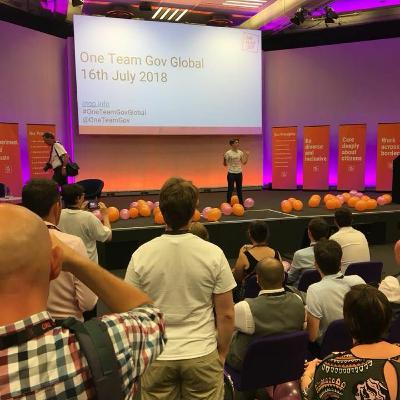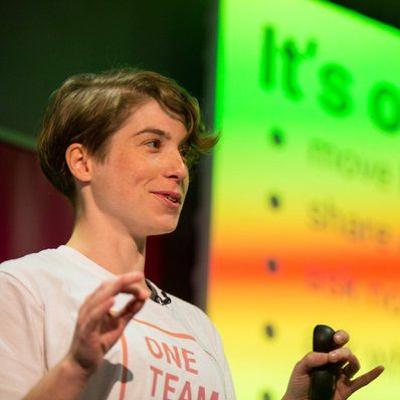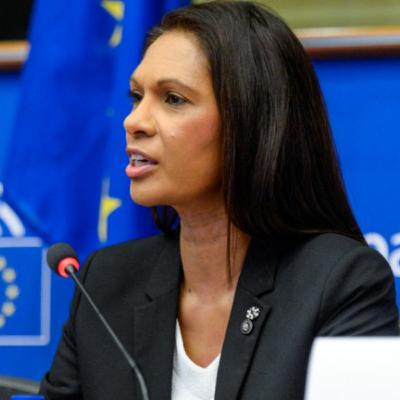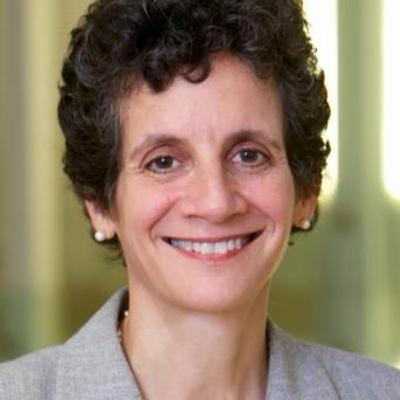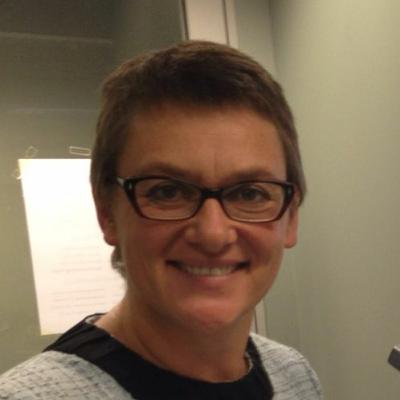Discover The Centre for Public Impact (CPI) Podcast
The Centre for Public Impact (CPI) Podcast

The Centre for Public Impact (CPI) Podcast
Author: Centre for Public Impact
Subscribed: 8Played: 91Subscribe
Share
© All rights reserved
Description
The Centre for Public Impact is a not for profit foundation dedicated to improving the positive impact of governments. Check out our stories of government effectiveness and impact from around the world.
*The Centre for Public Impact, a BCG Foundation, is not affiliated with Public Impact, an independent education research and consulting firm dedicated to improving learning outcomes for all children in the United States.
*The Centre for Public Impact, a BCG Foundation, is not affiliated with Public Impact, an independent education research and consulting firm dedicated to improving learning outcomes for all children in the United States.
49 Episodes
Reverse
Nadine Smith spoke to BBC Radio 4's Westminster Hour about ministerial plans to reform the UK Civil Service by moving it out of London, warning that one-off measures won't be enough to bridge the gap between citizens and government.
Over the past 18 months, we have looked at how young people feel about their power to change what government thinks of them and their power or desire to be ‘one of them’ - diversity in government is something we have found is important for legitimacy.
The UK has a particularly tricky time letting young people into mainstream debates and young people have a hard time communicating back with power they know little about, not even how it truly impacts their own lives and communities. This is a tragedy and it is having profound consequences.
We recently spoke to an inspiring group of young women about their relationship with government.
Listen to what they told us.
What do you get if you bring together 700 people from 43 countries into one room, organise a whole day of sessions, including yoga and Lego, and then you let them all decide who they want to talk to and when? Well, One Team Gov Global did exactly that and the outcome was truly amazing.
Listen to our latest podcast, recorded live at #OneTeamGovGlobal, where we talk with a host of attendees on how the One Team Gov movement is building momentum in public service.
What do you get if you bring together 700 people from 43 countries into one room, organise a whole day of sessions, including yoga and Lego, and then you let them all decide who they want to talk to and when? Well, One Team Gov Global did exactly that and the outcome was truly amazing.
Listen to our latest podcast, recorded live at #OneTeamGovGlobal, where we talk with Kit Collingwood, co-founder of One Team Gov, and a host of attendees on how the One Team Gov movement is building momentum in public service.
Tony Blair served as Prime Minister in the UK from 1997 - 2007, the only Labour leader in the party’s 100-year history to win three consecutive elections. Like many of his predecessors, Blair’s time as Prime Minister was not without its challenges. Under his leadership, 'New Labour’ aimed to implement reforms to reduce poverty, health waiting times and unemployment, while focusing on improving living standards. However, a key challenge was how government itself was run. His time in government is equally recognised for his bold reforms to the way the centre of government worked with departments to transform and manage public services several of which (e.g. Delivery Units) have been replicated around the world.
In our latest podcast, Adrian Brown sits down with Tony Blair, now Executive Chairman of the Tony Blair Institute for Global Change, to discuss the challenges and reflections of his time as Prime Minister.
They also discuss 'The Future of Government' a topic we're researching at CPI and we hear Tony Blair’s thoughts on how government needs to adapt to reflect societies changing needs.
Enjoy the recording and let us know what you think. Do you agree with him?
How can public sector organisations transform themselves while ensuring that the business of government continues unabated? This is just one of the questions tackled in the latest CPI Podcast.
Our guest is Agnès Audier, whose career has taken her to the top of the public and private sectors in France. A physicist by training, she began her career as a product engineer for a chemistry group and later a top strategist with Vivendi, the Paris-based global Advertising and Entertainment Company. In government, meanwhile, she has served as technical advisor to Simone Veil, the then Minister of Social Affairs and Health, as well as as principal private secretary to Jean-Pierre Raffarin, who at the time was minister of small business, trade and craft industries.
Here, she sits down with CPI's Margot Gagliani to discuss how governments can best embark on transformation projects, whether it is harder for the public sector than in business and much more.
Comment les organisations publiques peuvent-elles se transformer tout en maintenant le niveau de qualité des services rendus aux citoyens ? Voilà l’une des nombreuses questions abordées dans le dernier Podcast CPI.
Notre invitée est Agnès Audier. Son parcours professionnel s'est construit au plus haut niveau des secteurs public et privé en France. Physicienne de formation, elle a commencé sa carrière comme Ingénieure Produit pour un groupe de chimie, puis l’a poursuivie comme Stratégiste en chef chez Vivendi, l’entreprise mondiale de divertissement et de publicité basée à Paris. En parallèle, elle a occupé diverses fonctions dans le secteur public : Conseillère Technique de Simone Veil, alors Ministre des Affaires Sociales et de la Santé, puis Directrice de Cabinet de Jean-Pierre Raffarin, alors Ministre des PME, du Commerce et de l'Artisanat.
Aujourd’hui, elle est à mes côtés pour évoquer comment la manière dont les gouvernements peuvent transformer avec succès l'action publique.
Gina Miller is someone that few would have heard of a couple of years ago. But her legal challenge against the government of the UK forcing ministers to seek approval from the UK Parliament before starting the formal process to leave the EU changed all that.
In the latest CPI Podcast, she sat down with our director of communications, Nadine Smith, to discuss what it was like to be in the eye of a media and political storm, her ongoing role in the Brexit debate, the state of legitimacy and democracy today, and much, much more.
In this special podcast we present details about our research projects, as well as speak with our co-chairman, Sir Michael Barber, about CPI’s story so far.
First, we hear from Danny Buerkli, CPI’s programme director, about Artificial Intelligence and the Future of Government. Nadine Smith then explains how we have been helping governments Find Legitimacy by strengthening their relationship with citizens to improve public impact. And finally, our executive director, Adrian Brown, sits down with Sir Michael, our co-chairman and his former boss at the Number 10 Delivery Unit. They talk about CPI’s progress, and where we should focus in 2018...
2017 has been quite a year. In this special podcast, our executive director, Adrian Brown, our global communications director, Nadine Smith, and our programme director, Danny Buerkli, look back on the tumultuous events of the past 12 months, and how CPI has contributed to the ongoing drive to improve government performance.
From the impact of new leaders – this time last year Presidents Trump and Macron had yet to take office – to the increased focus on artificial intelligence and the ongoing challenges surrounding legitimacy for governments around the world, it has been a period of considerable turbulence and change. Find out what Adrian, Nadine and Danny made of these dramatic events, and hear about their plans for 2018.
Welcome to the Centre for Public Impact Best of 2017 podcast. Here, we have selected clips from some of our most popular podcast conversations from the past 12 months. We hope you enjoy their insights about improving public impact.
Changing a university curriculum is not something to be done lightly – and that's precisely why it's crucial for the proposals to have legitimacy, says Sherry Glied, Dean of New York University’s Robert F. Wagner Graduate School of Public Service, in the latest CPI podcast.
She tells Katie Rose about her experiences in public service (she served in many senior roles in Washington, DC), how she and her team are training students to develop the soft skills necessary to become effective policymakers and much more.
Innovation is something that enjoys strong resonance across the public and private sectors. But while individuals and organisations many seek it, actually achieving it is far harder. That's why the Evans School of Public Policy and Governance at the University of Washington, Seattle, has made it a key priority for its students.
In this latest CPI Podcast, Katie Rose sits down with Dr. Sandra O. Archibald, Dean and Professor of the Evans School, to talk about why innovation is so important and how it might take deeper root in government.
Transparency, governance and government legitimacy were just a few items on the agenda when Alasdair Roberts sat down with CPI's Katie Rose in Washington, DC recently.
Roberts, who heads up the UMass Amherst School of Public Policy, explains why he believes governments generally perform well when it comes to their fundamental responsibilities, but challenges remain in how they stay connected and relevant to their citizens.
Few – if any – countries are as closely identified with digital technology as Estonia. It has been blazing a digital trail for many years and continues to lead the way in its deployment of cutting edge systems that are delivering a raft of citizen-centric services to its population. One man who knows all about their approach is Ivar Tallo, a former Estonian parliamentarian who also co-founded the country's e-Governance Academy, an organisation set up to create and transfer knowledge and best practices on e-governance, e-democracy, national cybersecurity and open information societies.
He sat down with CPI's Danny Buerkli recently to discuss Estonia's digital track record, what makes it different to other countries, the importance of trust in digitisation and much more...
So, what does a 'Futurist in Chief' do all day? Noah Raford tells us about his role looking up to 50 years in the future as part of his role with the Dubai Future Foundation.
He sits down with CPI's Danny Buerkli to discuss how he identifies emerging opportunities and trends, and work with partners in the government and colleagues in the private sector to translate them into prototypes and, ultimately, policies. They also talk about the lessons that can be drawn from Dubai – and the UAE's – transformation, his experience in the Prime Minister's Office and much more.
"It's a new way of looking at really entrenched problems," says Derval Usher, head of office for Pulse Lab Jakarta. You can say that again.
She sits down with CPI's Danny Buerkli to explain how she and her team help facilitate the adoption of new approaches for applying new, digital data sources and real-time analysis techniques to social development in Indonesia and across the southeast Asia region. They discuss how they go about harnessing the power of social media to help the government understand the priorities and needs of the Indonesian population, particularly in relation to pressing social issues such as the annual blight of forest fires.
Find out how they are giving voice to the people and helping Indonesia's policymakers develop an 'early warning system' for emerging issues and challenges.
Made up of more than 1,000 small islands, 200 of which are inhabited, The Maldives is not the easiest of environments to govern – but that's not getting Lahfa Fathimah down.
The performance director of The Maldives Civil Service Commission sits down with CPI's Danny Buerkli to discuss the challenges of public administration when two-thirds of the population are dispersed across a multitude of often remote small islands. They also talk about the reality of providing public services to the inhabitants of these islands, why decentralisation and digital technology have a key role to play, and her priorities for the performance management of individual public servants and government departments alike.
How has a small country like New Zealand made such a global impact when it comes to its use of digital technology to improve government services? That's just one of the issues we investigate in this latest CPI Podcast.
We hear from Maria Robertson, who serves as deputy chief executive, service delivery and operations, in the country's Department of Internal Affairs about rethinking public services as a whole, rather than just digitising them. We also talk about New Zealand's continuous development of digital services, empowering the frontline and why they are interested in "intelligence" – not just artificial intelligence...
Listen to Nadine Smith's keynote speech to our Impact and Legitimacy Focus Group at Innovation Labs World, Singapore.




